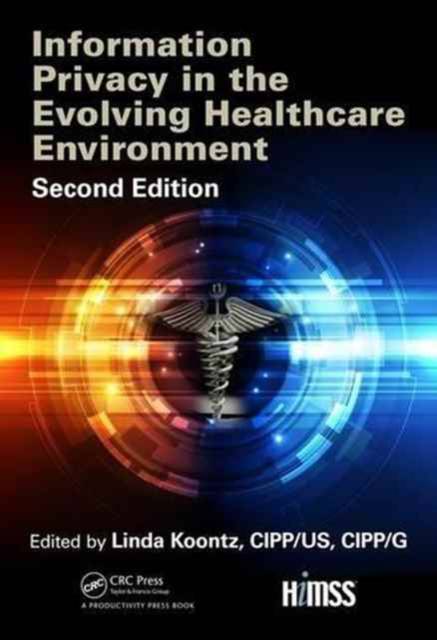
- Retrait gratuit dans votre magasin Club
- 7.000.000 titres dans notre catalogue
- Payer en toute sécurité
- Toujours un magasin près de chez vous
- Retrait gratuit dans votre magasin Club
- 7.000.0000 titres dans notre catalogue
- Payer en toute sécurité
- Toujours un magasin près de chez vous
Information Privacy in the Evolving Healthcare Environment
Linda KoontzDescription
Advances in health information technology (health IT) have the potential to improve the quality of healthcare, to increase the availability of health information for treatment, and to implement safeguards that cannot be applied easily or cost-effectively to paper-based health records. However, the digitization of health information is also raising new privacy
risks and concerns. Sensitive health information in digital form is more easily aggregated, used, and shared. In addition, the rising cost of healthcare and the search for efficiency may create incentives to use the information in new ways.
Research has consistently shown that while the public sees the potential value of health information exchange and technological advancements, it remains gravely concerned about the privacy of their sensitive health information. As a result, it is becoming increasingly clear that ensuring public trust will be critical to the successful implementation of nationwide health information exchange.
The purpose of this second edition is two-fold: 1) to educate readers about privacy concepts and 2) highlight key privacy issues facing the nation and the healthcare community as it moves towards electronic health records and health information exchange. The first three chapters are descriptive in nature, defining privacy and distinguishing it from security, defining the complex legal landscape for health information privacy, and setting the stage for the following chapters by describing the current landscape of the evolving healthcare environment. The following chapters discuss specific privacy issues and challenges in detail. The book concludes with a chapter providing a view to the future of healthcare and the association privacy implications. This is an updated version of one of HIMSS' best-selling books on information privacy.
Spécifications
Parties prenantes
- Auteur(s) :
- Editeur:
Contenu
- Nombre de pages :
- 260
- Langue:
- Anglais
- Collection :
Caractéristiques
- EAN:
- 9781138196124
- Date de parution :
- 16-02-17
- Format:
- Livre relié
- Format numérique:
- Genaaid
- Dimensions :
- 175 mm x 257 mm
- Poids :
- 639 g

Les avis
Nous publions uniquement les avis qui respectent les conditions requises. Consultez nos conditions pour les avis.






